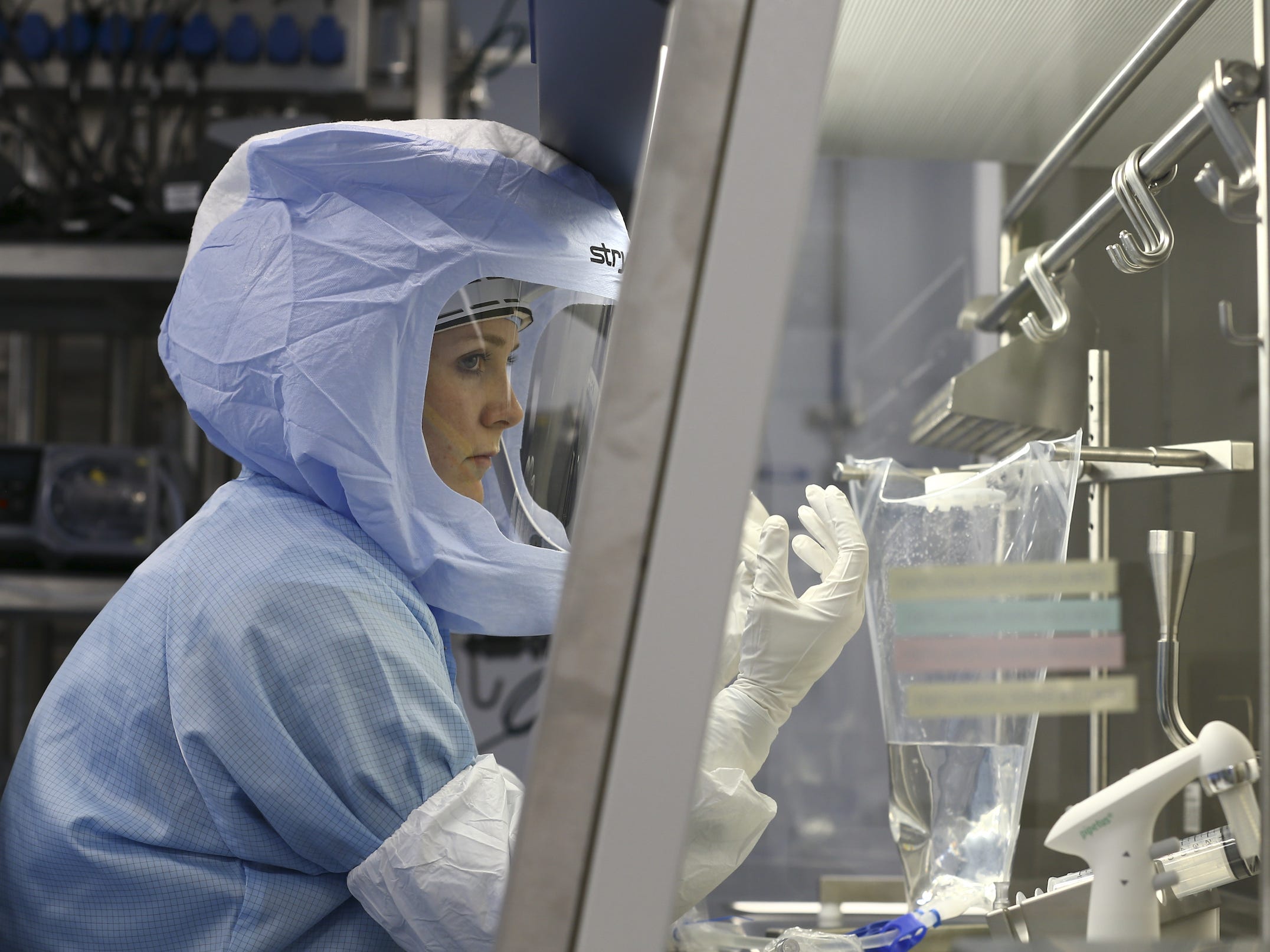
Abdulhamid Hosbas/Anadolu Agency via Getty Images
- Drugmakers big and small are storming into messenger RNA research.
- The technology behind the first COVID-19 vaccines could help fight other diseases, including cancer.
- Early leaders in the mRNA space include Moderna, BioNTech, Pfizer, Sanofi, and GlaxoSmitKline.
- This article is part of a series called "Future of Healthcare," which explores how technology is driving innovation in the development of healthcare.
While the COVID-19 pandemic will be remembered as a scourge on humanity, there are silver linings.
Perhaps the biggest success story has been coronavirus vaccines, which were developed in record time and have undoubtedly saved millions of lives. Looking beyond the pandemic, the underlying technology behind the leading COVID-19 shots could also be useful for many other diseases, potentially leading to dozens of new treatments and vaccines over time.
The first vaccines, developed by Pfizer-BioNTech and Moderna, are based on a new technology platform called messenger RNA, or mRNA. While drug companies have been working on mRNA-based medicines for years, the COVID-19 vaccines are the first mRNA vaccines to be authorized and widely used.
Now, scientists are eager to usher in a new era of medicine, applying the learnings from COVID-19 to a range of illnesses, including cancer, HIV, and rare diseases.
Only a few years ago, mRNA was seen as a promising but unproven idea in drug development. Now, the world's largest drugmakers - like Pfizer, GlaxoSmithKline, and Sanofi - are building their mRNA capabilities as the pandemic has vaulted relatively smaller biotechs like Moderna and BioNTech to record valuations.
mRNA taps into genetic insights over the past decades
Many vaccines aim to deliver a crucial protein to cells to teach them to fight off a certain pathogen. The mRNA approach uses genetics to go a step back in that process.
Our cells convert DNA to RNA molecules. RNA tells cells how to produce proteins. mRNA vaccines deliver those genetic instructions to build a certain protein, rather than the protein itself.
Drug engineers can design mRNA therapies to control which protein to make and how much. That mRNA sequence is then placed in a microscopic blob of fat, called a lipid nanoparticle, which carries the genetic payload into our cells.
Because mRNA therapies can theoretically be designed in the lab, mRNA holds the promise of addressing a wide range of diseases. Moderna CEO Stephane Bancel often calls it "plug-and-play" technology, where scientists can design additional mRNA sequences with a higher-than-usual chance they'll work.
The mRNA pipeline extends beyond COVID-19
The mRNA technology won't be limited to vaccines.
Moderna is already testing in human studies potential vaccines against the flu, cytomegalovirus, respiratory syncytial virus, and Zika. Vaccines against the mononucleosis-causing Epstein-Barr virus, the Nipah virus, and HIV are still in the earliest stages of research. The Massachusetts biotech is also developing mRNA treatments for the Chikungunya virus and is exploring research into auto-immune disorders and cancer.
The German biotech BioNTech originally focused on fighting cancer with mRNA. That's still reflected in its pipeline, where the bulk of the research is in oncology. The biotech is in the early stages of human studies testing its mRNA technology against a range of cancer types, including melanoma, prostate cancer, breast cancer, and ovarian cancer among others.
BioNTech also has some additional vaccine research. In partnership with Pfizer, it's working on a flu vaccine that has yet to start human testing. BioNTech also partnered with the University of Pennsylvania in 2018 to work on vaccines for infectious diseases.
Capturing the attention of drug giants
Moderna and BioNTech are far from alone.
While Pfizer partnered with BioNTech to develop the COVID-19 vaccine, the pharma giant is hiring its own mRNA team that will work independently from BioNTech. Pfizer has mapped out three waves of mRNA research: more infectious-disease vaccines, expanding to rare disease and cancer, and potentially going into prevalent heart and inflammatory diseases if there's more evidence the approach will work.
Meanwhile, in August, the French pharmaceutical company Sanofi said it would buy Translate Bio, a tiny Massachusetts biotech specializing in mRNA, for $3.2 billion. CEO Paul Hudson said the deal will allow Sanofi to work on mRNA in vaccines, immunology, oncology, and rare diseases.
GlaxoSmithKline has also invested in its own mRNA program, which is led by its Rockville, Maryland vaccine research unit. The British pharma company hasn't specified its long-term plans in mRNA, but started an early stage human study testing its own potential mRNA COVID-19 vaccine earlier this year. The leader of its vaccine unit has pledged GSK will be a leader in mRNA and also has inked a partnership with CureVac, a German mRNA specialist, to develop a next-generation COVID-19 vaccine.


